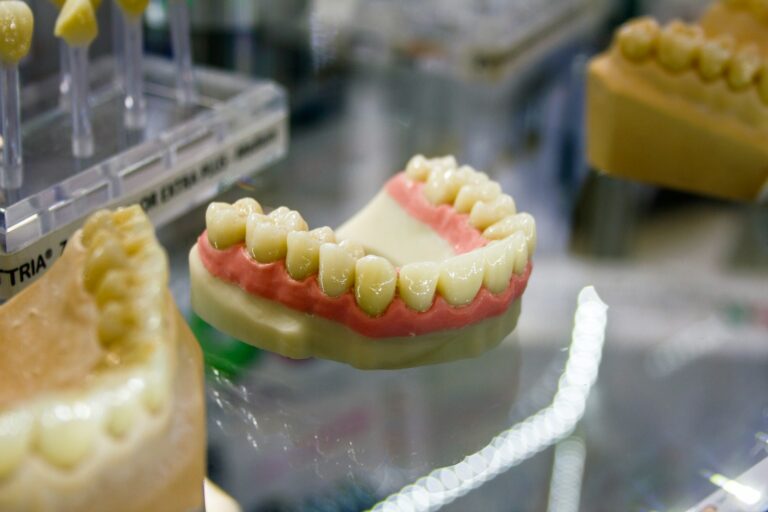
Dental implants can truly be a transformative option for individuals looking to restore their smiles, yet the associated costs can often be intimidating.
Fortunately, there are several options available on how to finance dental implants. Whether it involves dental insurance, payment plans, health savings accounts, or personal loans, it is essential to understand the choices at your disposal.
Additionally, exploring alternative methods to make dental implants more affordable—such as negotiating with your dentist or seeking out low-cost clinics—can further reduce expenses. It is possible to navigate your dental implant journey in a way that is both feasible and financially manageable.
What Are The Financing Options For Dental Implants?

When considering dental implants, it is essential to understand the various financing options available to make this important investment in your oral health.
The cost of dental implants can be substantial, prompting many patients to explore financial solutions that align with their budgets.
By looking into different financing avenues—such as dental insurance policies, payment plans provided by dental practices, and specialised options like health savings accounts or personal loans—you can make the procedure more accessible and manageable.
Having this knowledge enables you to make informed decisions regarding your dental care costs and the financing of your treatment.
1. Dental Insurance
Dental insurance can play a significant role in reducing the cost of dental implants, but it is essential to understand your policy in order to maximise your benefits. Not all dental insurance plans include coverage for implant procedures, so reviewing your coverage details and obtaining quotes is critical for anticipating any out-of-pocket expenses.
If your plan does cover dental implants, being aware of the coverage percentage and any limitations can greatly assist you in your financial planning.
It is also important to note that dental insurance policies may include waiting periods or exclusions that could affect your eligibility for coverage on implants. For individuals considering these procedures, familiarising themselves with terms such as deductibles and annual maximums related to their coverage is crucial.
In some cases, insurers may provide a percentage for the procedure upfront, while others might classify implants under a special provision. Therefore, promptly comparing various quotes from different providers not only helps in finding an appropriate plan but also ensures preparedness for any unexpected costs.
This diligent approach ultimately fosters better decision-making as individuals navigate the complexities of financing dental care.
2. Payment Plans
Many dental practices provide flexible payment plans that can help make the cost of dental implants more manageable. These plans typically allow patients to spread the total cost over several months, making the financial aspect of dental procedures less intimidating.
By discussing their needs with the dental practice, patients may discover budget-friendly options that align with their financial situation, easing the burden of upfront costs.
For example, many patients have access to low-interest instalment plans, which can significantly lessen the overall financial strain of dental expenses. Recognising that affordability is crucial for accessing essential treatments, many practices are willing to negotiate payment flexibility based on individual circumstances.
Some practices even offer interest-free options for the initial months, enabling individuals to concentrate on their recovery without the added stress of financial constraints. By encouraging open communication with their dental provider, patients can uncover tailored solutions that not only enhance overall affordability but also facilitate timely access to necessary dental care.
3. Dental Savings Plans

Dental savings plans present a compelling alternative for patients who wish to manage their dental care costs, including implants. Unlike traditional insurance, these plans typically offer discounts on various dental procedures in exchange for an annual fee. By understanding how dental savings plans function and what they encompass, individuals can better assess their value and determine if they align with their financial strategy for maintaining oral health.
Generally, these plans cover essential services such as routine check-ups, examinations, and fillings, as well as more extensive procedures like crowns and root canals. This coverage allows individuals to save significantly on out-of-pocket expenses.
Additionally, with a structured fee schedule often established, patients can easily anticipate their dental costs, which aids in more effective financial planning.
One of the key advantages of dental savings plans is the absence of waiting periods or annual maximums, features commonly associated with traditional insurance. This means that individuals can seek treatment as needed, making these plans particularly advantageous for those requiring immediate dental care.
Overall, dental savings plans can serve as a practical and efficient method for securing necessary treatments without the stress of unexpected expenses.
4. Health Savings Accounts
Health Savings Accounts (HSAs) serve as a valuable resource for managing the expenses associated with dental implants and other procedures. For those enrolled in a high-deductible health plan, contributing to an HSA enables individuals to save money tax-free for qualified medical expenses, including dental care. This approach can significantly alleviate the financial burden of treatment costs, making it a prudent option to consider when planning for essential dental work.
By channelling pre-tax earnings into an HSA, individuals can not only lower their taxable income but also establish a fund specifically earmarked for their dental needs. Contributions to this account are flexible and can be made by both the account holder and their employer. Additionally, the funds accumulated in the HSA roll over annually, allowing individuals to grow their savings over time.
Withdrawals for eligible expenses, ranging from routine cleanings to more extensive procedures, remain tax-free. This strategic financial tool enables individuals to effectively take control of their dental care budgeting.
5. Personal Loans
Personal loans can serve as a practical solution for covering the costs of dental implants, particularly when immediate financial assistance is required. Numerous financial institutions offer competitive rates and flexible repayment terms, making it easier to manage monthly payments in line with your budget.
Ahead of moving forward, it is essential to conduct a credit assessment to determine your eligibility and identify the best loan options available to you.
Evaluating your credit score is a crucial first step, as it significantly impacts your loan terms and interest rates. Lenders typically rely on this score to assess your reliability as a borrower; consequently, a higher score may enable you to secure more favourable conditions.
Once you have a clear understanding of your financial situation, it is advisable to shop around and compare interest rates from different lenders. Exploring various borrowing options, such as personal loans, credit cards, or even specialised healthcare financing, can also be beneficial.
By comparing the terms and conditions of these options, individuals can ensure they select the most cost-effective method to cover the expenses associated with necessary dental procedures.
6. Credit Cards
Using credit cards to finance dental implants can be an efficient way to manage treatment costs, particularly when specialised dental credit cards offer specific benefits tailored to such expenses.
While this method allows for immediate payment, it is essential to fully understand the repayment terms and potential interest rates associated with credit card usage. Being informed will help ensure that you can effectively manage your financial responsibilities without risking debt.
Choosing credit cards with promotional interest rates or rewards programmes can enhance the overall financing experience, making it more beneficial. It is important for individuals to evaluate their spending habits and select a credit card that matches their repayment strategies.
Additionally, considering factors such as annual fees, grace periods, and cashback programmes can contribute to better financial management in the long run. Establishing a clear repayment plan is crucial, as making timely payments can lead to improved credit scores and potentially access to more favourable financial services in the future.
Ultimately, finding a balance between immediate dental care needs and long-term financial health is of utmost importance.
What Are Other Ways To Make Dental Implants More Affordable?

Along with financing options, there are several effective strategies to make dental implants more affordable for patients, ensuring access to necessary oral health treatments.
One proactive approach is to negotiate with your dentist, who may be open to offering discounts or flexible payment arrangements that align with your budget.
Additionally, considering low-cost clinics, exploring travel options for dental care, and utilising dental schools can significantly reduce treatment costs while maintaining quality.
1. Negotiating With The Dentist
Negotiating with your dentist can surprisingly lead to significant savings on dental implant procedures, making it a conversation worth having. Many patients are unaware that dental practices may be open to negotiating fees, offering discounts, or creating personalised financing plans tailored to individual financial situations.
Engaging in open communication can foster understanding and pave the way for more favourable terms that help alleviate treatment costs.
To effectively initiate this discussion, it is essential to come prepared with knowledge about your treatment options and any existing payment plans. Approach the conversation with a transparent mindset, clearly articulating your financial concerns and any limitations you may be facing.
By emphasising your willingness to agree to a payment plan that accommodates both parties, you demonstrate your commitment to the treatment. Building rapport during this dialogue can lead not only to better financial outcomes but also to a more trusting relationship with the dental practice.
Ultimately, adopting this proactive approach can significantly enhance your overall experience and satisfaction with dental care.
2. Seeking Out Low-Cost Clinics
For individuals concerned about the costs associated with dental care, seeking out low-cost clinics can serve as a viable alternative for obtaining dental implants and other necessary procedures. These clinics often offer reduced fees for uninsured patients or those working within a budget, allowing access to essential treatments without incurring significant financial strain. It is advisable to conduct thorough research on these options to ensure that the clinic provides quality care.
Many low-cost clinics operate on a sliding scale, meaning that fees can be adjusted based on an individual’s income, thereby making dental care more accessible to a broader audience. Patients can typically find a range of services from routine cleanings and fillings to more advanced procedures, such as orthodontics and restorative treatments.
Additionally, these clinics often prioritize patient support, providing guidance throughout the entire treatment process. It is essential for patients to verify that the clinics uphold high standards of care, which includes having qualified staff and appropriate equipment. This ensures that they receive treatment in a safe and professional environment.
3. Traveling Abroad For Dental Implants
Travelling abroad for dental implants, commonly known as dental tourism, presents an opportunity for significant savings on treatment costs while allowing patients to explore new destinations.
Many countries provide high-quality dental procedures at a fraction of the expenses typically incurred in the U.K., making this an appealing choice for those seeking more affordable options. It is crucial to conduct thorough research into the dentist’s credentials and the overall safety of the procedure before making any commitments.
The opportunity to experience new cultures while receiving dental care is quite enticing, as many individuals seek out such experiences for both health benefits and leisure.
However, patients contemplating this option must carefully consider the potential cost savings against the associated risks, such as variations in healthcare standards and possible language barriers. Additionally, the need for follow-up care may necessitate travelling long distances back to the original provider.
Therefore, it is essential for patients to read reviews, consult with previous clients, and understand the credentials of the dental professionals involved. This approach not only helps ensure a pleasant trip but also contributes to satisfactory treatment outcomes.
4. Using Dental Schools
Utilising dental schools for implant procedures can be an excellent way to access quality dental care at a reduced cost, as these services are often provided by student dentists under the supervision of experienced professionals. This approach not only assists patients seeking affordable treatment but also offers invaluable hands-on experience for dental students.
It is essential, however, to have realistic expectations regarding the timeframe and complexity of the procedures involved.
Along with financial savings, these programmes often employ advanced technology and updated practices, as students are trained in the latest techniques. Nonetheless, potential patients should be aware of certain limitations, including longer wait times and the likelihood of needing multiple visits for a single implant case.
To find accredited dental schools in their area, individuals can visit the British Dental Association’s website or reach out to local colleges that offer dental programmes. When patients attend a dental school, they can expect to receive care overseen by experienced faculty, ensuring that, although the procedures are performed by students, they still meet high standards of quality and safety.
5. Crowdfunding

Crowdfunding has become a practical strategy for individuals seeking financial assistance for dental implants, utilising the power of community support to address healthcare needs. By sharing personal stories and treatment goals on crowdfunding platforms, friends and family can contribute to covering dental care costs, which can significantly alleviate financial burdens. This approach not only secures funding but also raises awareness about the importance of oral health.
Setting up a successful campaign involves more than simply posting a few words online; it requires crafting a thoughtful narrative that appeals to potential donors on an emotional level while clearly outlining the financial requirements. Incorporating engaging visuals and providing regular updates can help maintain momentum, encouraging others to share the campaign within their networks.
Understanding how to effectively engage the community can greatly enhance outreach, as personalised messaging often resonates better, fostering a sense of connection and urgency among potential supporters.
Ultimately, this collaborative effort can lead not only to achieving funding goals but also to building a supportive community focused on health and well-being.
Frequently Asked Questions on How to Finance Dental Implants
What are some common options for financing dental implants?
Some common options for financing dental implants include dental insurance coverage, payment plans offered by the dental office, credit cards, personal loans, and financing through third-party companies.
Can I use my dental insurance to cover the cost of dental implants?
It depends on your specific dental insurance plan. Some plans may provide partial coverage for dental implants, while others may not cover them at all. It is important to check with your insurance provider beforehand to see what is covered under your plan.
What are payment plans and how do they work?
Payment plans are an option offered by many dental offices to help make the cost of dental implants more affordable. They typically involve breaking up the total cost of the procedure into smaller, more manageable payments that are spread out over a certain period of time.
Is it possible to finance dental implants with a credit card?
Yes, you can use a credit card to finance dental implants. However, it is important to consider the interest rate and potential fees associated with using a credit card for such a large expense. It may be more cost-effective to explore other financing options.
Can I take out a personal loan to pay for dental implants?
Yes, taking out a personal loan is another option for financing dental implants. This option allows you to borrow a lump sum of money and pay it back over time with interest. It is important to compare interest rates and terms from different lenders to find the most affordable option.
What should I consider when choosing a financing option for dental implants?
When choosing a financing option for dental implants, it is important to consider the interest rates, fees, and repayment terms. You should also consider your personal financial situation and choose an option that is most affordable for you in the long run.






